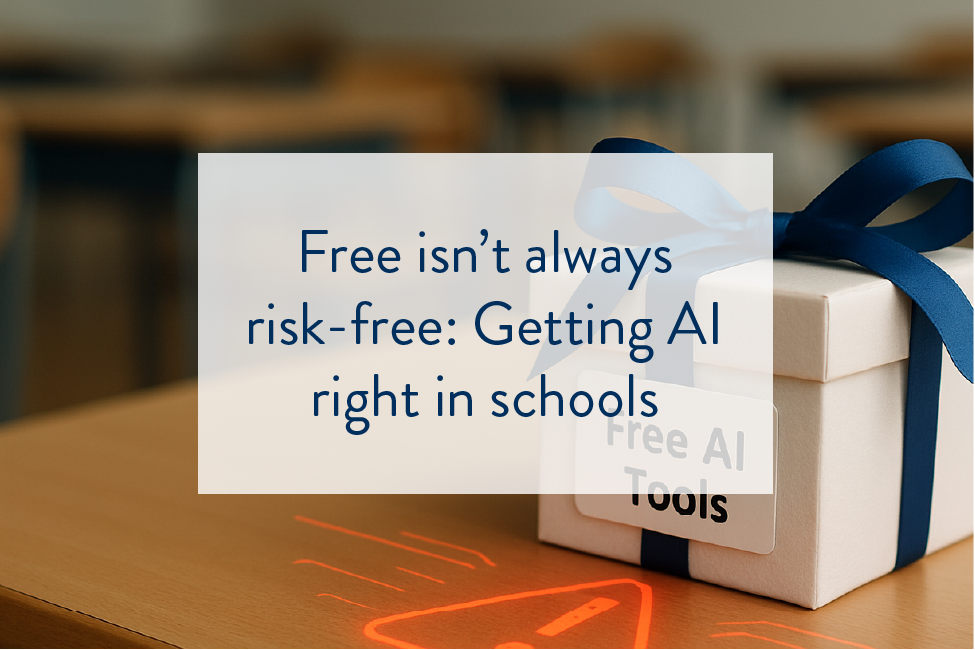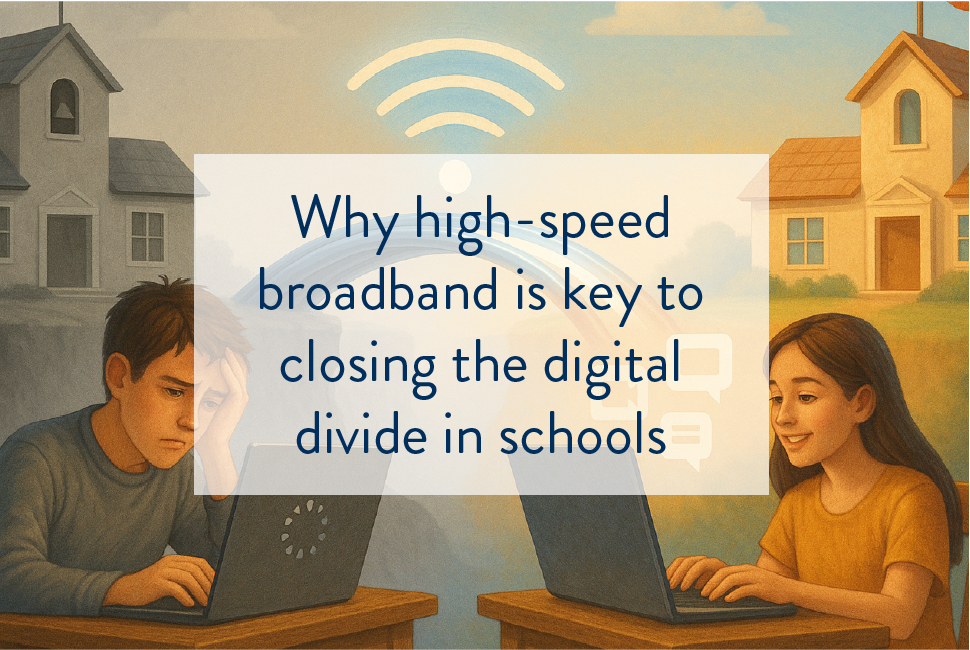As we move further into 2024, the world faces a critical period, confronted with numerous social and environmental challenges such as climate change, economic disparities, and access to education. Amidst these issues, the transformative potential of Information and Communication Technology (ICT) in addressing them has become increasingly apparent. This article explores the “tech for good” initiatives within the UK’s education sector, demonstrating how ICT is being utilised to create positive social and environmental change, supported by recent statistics and examples from 2023.
Harnessing Tech for Good: A Paradigm Shift in the UK
Broadening Internet Access in UK Households
In February 2023, The Datareportal Digital 2023 report revealed 97.8% of UK households now have internet access[1], marking a significant milestone. This extensive digital adoption holds substantial implications, especially in the areas of education, communication, and accessibility. The impacts are multifaceted:
- Educational Access: The increase in internet connectivity is directly enhancing access to educational resources. Students of all ages can now easily access online educational content and e-learning platforms. This proved to be a particularly vital resource during disruptions like the COVID-19 pandemic.
- Digital Inclusivity: While the significant increase in internet access among the general population over the last ten years signifies progress in bridging the digital divide, it’s important to remember that many households still lack effective connectivity, particularly households with a single adult aged 65 and above where penetration falls to 80%[2], and those in rural areas where only 44% of households have access to gigabit-capable broadband[3]. Ongoing efforts should prioritise affordable internet solutions to ensure these communities can access the benefits of the digital world.
- Economic Empowerment: Increased internet access has also fostered opportunities for remote work and online entrepreneurship. This not only contributes to individual economic empowerment but also enhances overall economic growth and resilience by opening new avenues for employment and income generation.
E-Learning Platforms: The New Educational Norm
The rise in e-learning platform usage in UK educational institutions during 2023 signals a pivotal shift towards digital education. This transition brings several benefits:
- Personalised Learning: Many e-learning platforms utilise adaptive learning technologies, enabling them to offer customised educational experiences that significantly enhance student performance and achievement.
- Flexibility and Reach: These platforms offer unparalleled flexibility in accessing educational materials, making them particularly beneficial for adult learners and individuals with busy schedules. This adaptability ensures that education is more accessible and accommodating to diverse lifestyles.
- Cost-Effectiveness: They often prove more economical than conventional education methods. By decreasing costs associated with textbooks, transportation, and infrastructure, they facilitate more affordable learning opportunities for students and institutions alike.
- Global Collaboration: These platforms open doors to global knowledge and collaboration, enriching the learning experience by exposing students to diverse viewpoints and cultures. This international dimension fosters a broader understanding of the world and cultivates valuable cross-cultural knowledge and skills.
- Resilience to Disruptions: The growth of e-learning platforms has been instrumental in maintaining educational continuity during unexpected disruptions, such as the COVID-19 pandemic. By offering a flexible and accessible learning environment, e-learning has proven to be a resilient solution, enabling students to continue their education despite challenging circumstances.
Innovative Educational Access Initiatives
Recent initiatives highlight the role of digital innovation in education. A notable example is the expansion of BBC Bitesize in 2023 to include environmental studies, reinforcing its position as a key online educational resource. Similarly, the ‘Open University‘ leveraged online technologies to broaden educational access while contributing to environmental sustainability through reduced commuting needs.
Confronting Environmental Challenges through ICT
In 2023, the UK’s investment in green technology and renewable energy capacity led to significant reductions in greenhouse gas emissions. Several key initiatives contributed to this progress:
- Ecotricity and UK Schools: Renewable Energy Education Ecotricity, a pioneering renewable energy company, has teamed up with various schools across the UK to install solar panels and wind turbines. This collaboration not only reduces energy costs for the schools but also offers students valuable hands-on experience with renewable energy technologies.
- Carbon Footprint Awareness in Education The integration of carbon footprint tracking apps in schools, such as the “My Carbon Footprint” app developed by the World Wildlife Fund (WWF), has empowered students and staff to take an active role in reducing their environmental impact. These apps provide users with insights into their carbon emissions and offer practical suggestions for making more sustainable choices.
- Bridging the Digital Divide The COVID-19 pandemic highlighted the urgent need to bridge the digital divide, leading to a wave of initiatives in 2023 aimed at increasing access to technology in schools. A combination of increased school investment and donations from major tech companies facilitated programs like Code Club and Raspberry Pi Foundation to expand their efforts. These initiatives focused on providing students with essential digital skills, ensuring they are well-prepared for the future job market.
Over the past year, the UK’s education sector has embraced Information and Communication Technology (ICT) as a powerful tool to tackle social and environmental challenges. The successful implementation of “tech for good” initiatives has paved the way for a more sustainable and inclusive future, highlighting the extraordinary potential of technology to transform education and society as a whole. As we continue to face global issues, these innovations serve as a testament to the pivotal role ICT plays in driving positive change.
Contact us today to discover how our we can support your institution’s efforts in applying technology for good.
[1] https://datareportal.com/reports/digital-2023-united-kingdom
[2] https://www.ons.gov.uk/peoplepopulationandcommunity/householdcharacteristics/homeinternetandsocialmediausage/bulletins/internetaccesshouseholdsandindividuals/2020
[3] https://commonslibrary.parliament.uk/research-briefings/cdp-2023-0176/#:~:text=As%20of%20January%202023%2C%2096,(speeds%20over%201%2C000%20Mbps).
Mar 13, 2024





